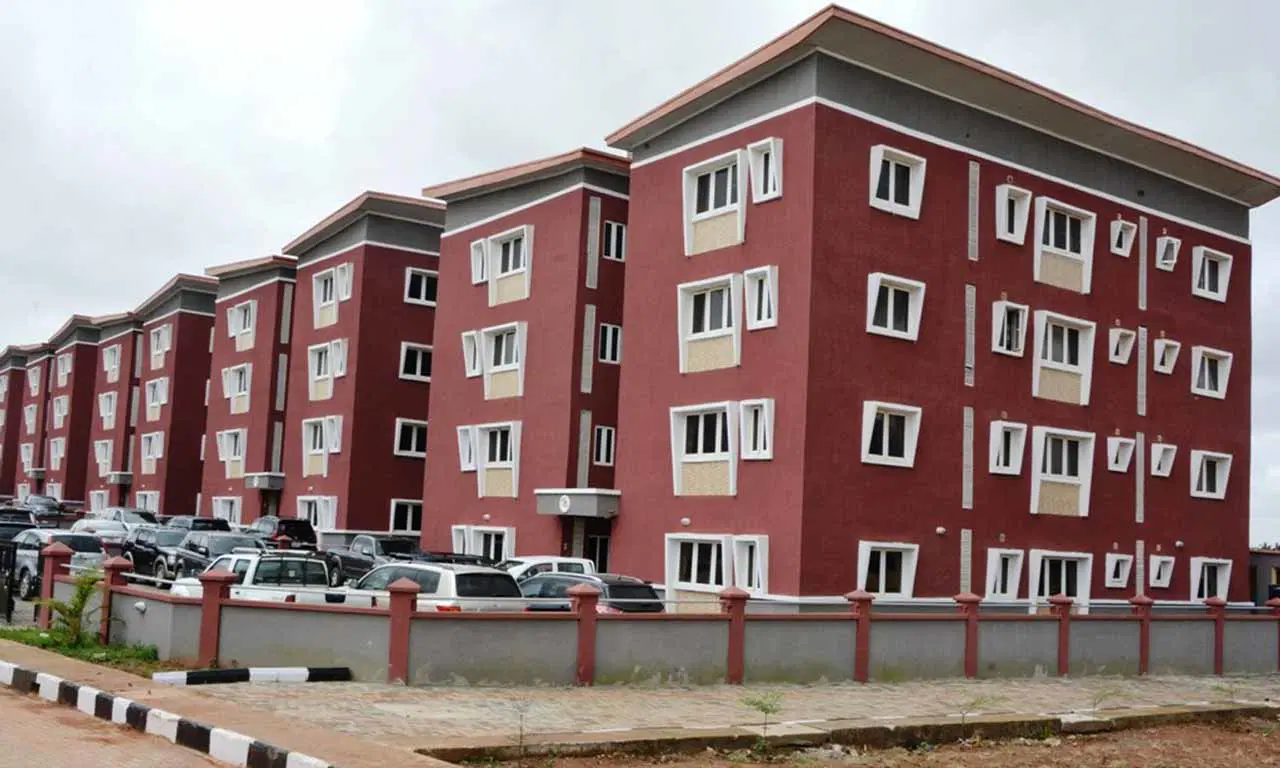A mounting sense of anticipation gripped the crowded hall of the 19th Africa International Housing Show as Minister Ahmed Musa Dangiwa delivered the news.
In response to Nigeria’s critical housing deficit, Dangiwa announced that ₦70 billion of private capital had been committed through public-private partnerships to power the country’s programme. “We are not just building houses,” he said, “we are fixing the structural and macroeconomic pillars that will make housing affordable.”
The Federal Mortgage Bank of Nigeria had introduced housing products with a base of empathy and pragmatism. Compared with the traditional mortgage plans that demand hefty down payments, the Rent-to-Own Scheme, for example, allowed Nigerians to gradually own homes while living in them.
Although the rental assistance product offered flexibility to poorer city residents and young families, it helped cushion the uncertainties of city life. It offered all classes of Nigerians– teachers, public officials, and artisans–access to a new home.
What distinguishes the federal government’s housing programme from previous programmes is its multi-layered, inclusive approach. Instead of replicating a single housing type in every 36 states, the government has developed a three-level strategy that tackles the specific needs of urban, peri-urban, and rural communities.
Dangiwa revealed that housing reform leaders would be mainstreamed into state governments and collaborate hand-in-hand with local governments to come up with implementable projects.
State roundtables and technical support mechanisms will enable sharpening of these strategies, rendering the approach not only collaborative but also context-sensitive. The age of top-down housing is gradually being replaced by people-centred, responsive solutions.
Even more persuasive is the government’s resolve to deal not only with the supply of new homes but also with the dignity of those living in informal settlements. Dangiwa reiterated that slum upgrading and urban renewal would be central to the housing agenda.
The country’s housing vision draws upon international best practices such as the UN-Habitat Global Action Plan and the Addis Declaration on Inclusive Urban Development. This indicates a shift towards total urban planning, including provision for access to clean water, roads, schools, and economic growth.
For a country where slums have been all too frequently bulldozed or excluded from official notice, this is an enlightened commitment to inclusiveness.
The federal government’s new housing programme is a movement that is people-focused with an understanding of shelter as a cornerstone of dignity, security, and progress.
By mobilising federal agencies, private developers, state governments, and foreign partners, the programme offers more than promises. It offers real change. In a country where millions have grown used to waiting, the promise of a home and the right to it could be the most radical and optimistic idea of all. As Dangiwa concluded in his keynote address, “Housing is not a privilege. It is a right.”
During the 19th Africa International Housing Show, Nigeria's Minister Ahmed Musa Dangiwa announced a ₦70 billion investment from private capital through public-private partnerships to address the nation's housing deficit. This initiative is aimed at not just constructing houses but also establishing economic frameworks to make housing affordable. The Federal Mortgage Bank of Nigeria has introduced empathetic and practical housing solutions, such as a Rent-to-Own scheme, allowing Nigerians to gradually own homes. This approach provides flexibility for poorer city dwellers and broader access to housing for all societal classes.
The program distinguishes itself by incorporating a three-level strategy catering to urban, peri-urban, and rural needs, as opposed to a one-size-fits-all method. Implementation will involve collaboration with state and local governments through state roundtables and technical support for tailored strategies. Moreover, the program emphasizes slum upgrading and urban renewal, aligned with international best practices and focusing on holistic urban planning that includes essential utilities and economic growth.
Dangiwa stressed the importance of inclusiveness and respect for those in informal settlements, signifying a shift towards a people-focused housing model. Backed by diverse partnerships with federal agencies, private firms, state governments, and international partners, the program aims for tangible impacts beyond promises by establishing housing as a fundamental right rather than a privilege.






